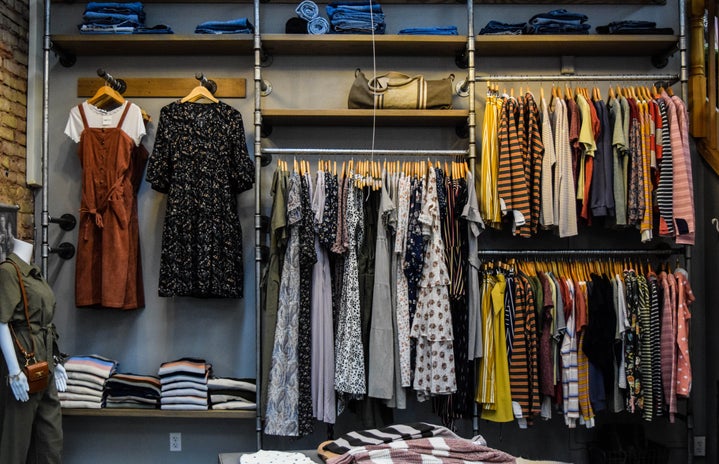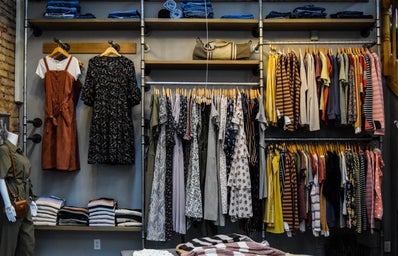Brooke Rothfield buys vintage. This was her 2017 New Years’ resolution, and she’s loved the results: “You’re accessing this closet that’s full of decades of different styles, and you get to choose your own.”
Here’s what HC learned from chatting with her.
Image via Brooke Rothfield
Rothfield has only bought vintage clothes for the past year—from thrift stores to Instagram.
“I decided I would boycott fast fashion,” Rothfield said, referring to the fashion industry manufacturing poor quality clothing the past couple decades. “I feel everything and pay attention to the fabric and how it’s built… [vintage has] lasted decades, so obviously there was some care put into it.”
Brooke Rothfield is a fourth year Communications major. She grew up in Denver, Colorado and moved to San Diego where she spent two years at Miramar Community college before transferring to UCSB. She spent her 2017 New Years’ with her friends in Portland, and with their support, she vowed to buy only vintage last year—and she still is!
For those of you who are still trying to find that style that just screams you, Rothfield suggests thrifting, “All the clothing I have found within the last year has become my staple wardrobe.”
Image via Olivia Montiano
Rothfield’s closet is full of basics are easy to mix and match, which makes getting dressed way easier. Her favorite go-to outfit her a basic white T-shift and jeans with her hairdo and/or jewelry of choice.
“Don’t love the way it fits? Bring it in to get it tailored. Yeah it’s a little more money, but you are investing in something that’s going to last and be a staple in your closet.”
Not to mention, buying new cheap clothes can have many more consequences than meet the eye. The majority of these materials are non-natural (polyester, acrylic, rayon) and processed with unhealthy chemicals.
“They’re super cheap, but they only want the item to last a few wears… You feel the need to buy more.” Rothfield explained that many fast fashion companies used to have integrity, but that isn’t the case today.
Major corporations like Forever 21, H&M, and Zara manufacture their clothes in China where sweatshop laborers make about $2 a day. It’s a money game, so the laborers are rushed and create poor-quality products.
OK, so why does a shirt from Forever 21 cost $15? Almost 100% of the profit goes to the companies that exploit laborers in China, or Bangladesh. The industry doesn’t invest in the workplace, so working conditions are dangerous, and over the years these factories become structurally unsound. In 2013, 1,110 workers were killed in the Savar building collapse in Bangladesh, and to this day the fast fashion industry still walks free.
Image via CNN
This doesn’t mean you need to throw away all your clothes from Forever 21 and Hot Topic… instead, make it last! Don’t succumb to the idea that clothes are “disposable.” During our chat, Rothfield was wearing her beloved Led Zeplin T-shirt she has had since middle school.
Here are her clothing-care tips:
- Hang dry! The dryer damages your clothes.
- Wash your jeans less often (denim becomes damaged when washed frequently)
- Pay attention to your fabric type and its washing directions
- If you get a stain, the internet is your friend. (Hint: baking soda with water is an eco-friendly way to remove stains!)
If you’d like to meet Brooke, she and some classmates are hosting a clothing swap on March 3rd at Little Acorn Park (right next to Bagel Café)! Come drop off your clothes ahead of time so you can trade-shop at the event. It’s like Free & For Sale on Facebook, but you can assess the quality of the clothes before you take them home. Get thrifting, Gauchos!


